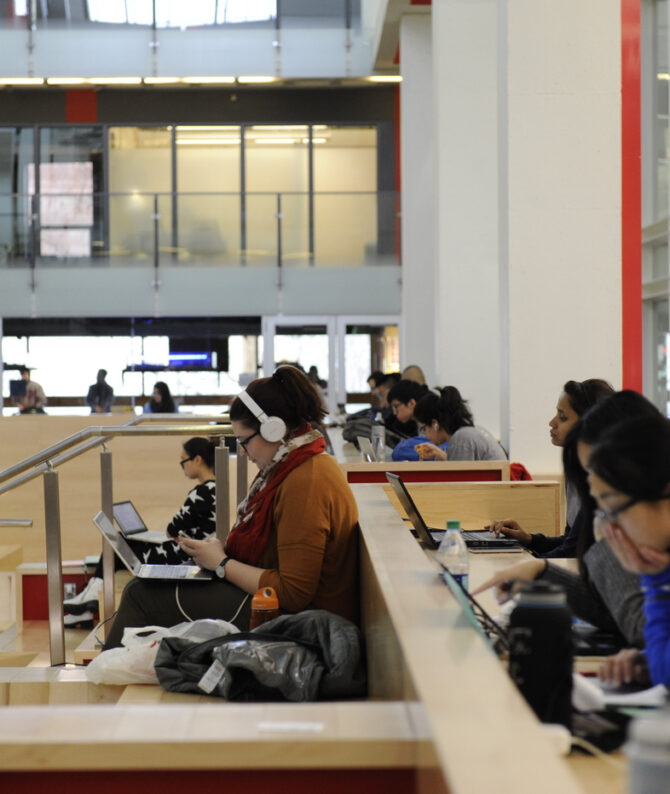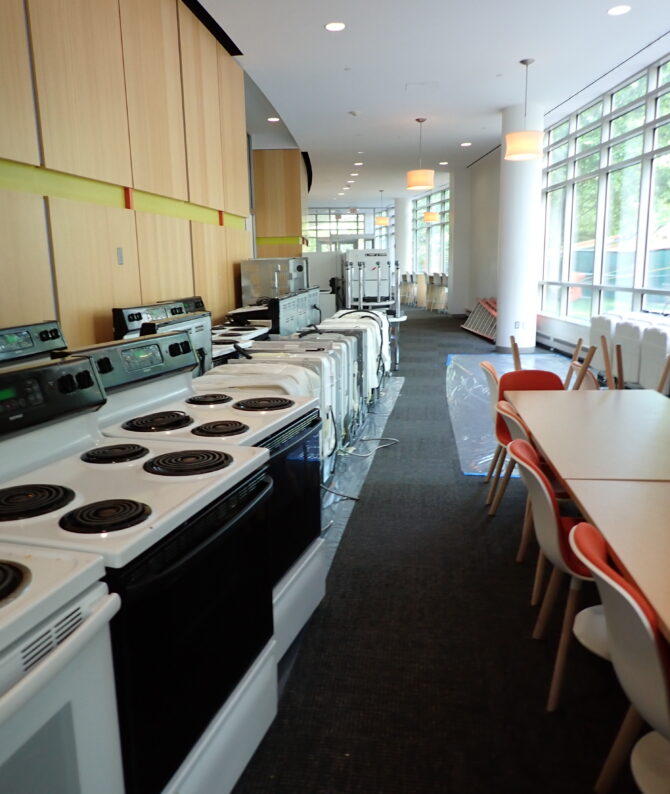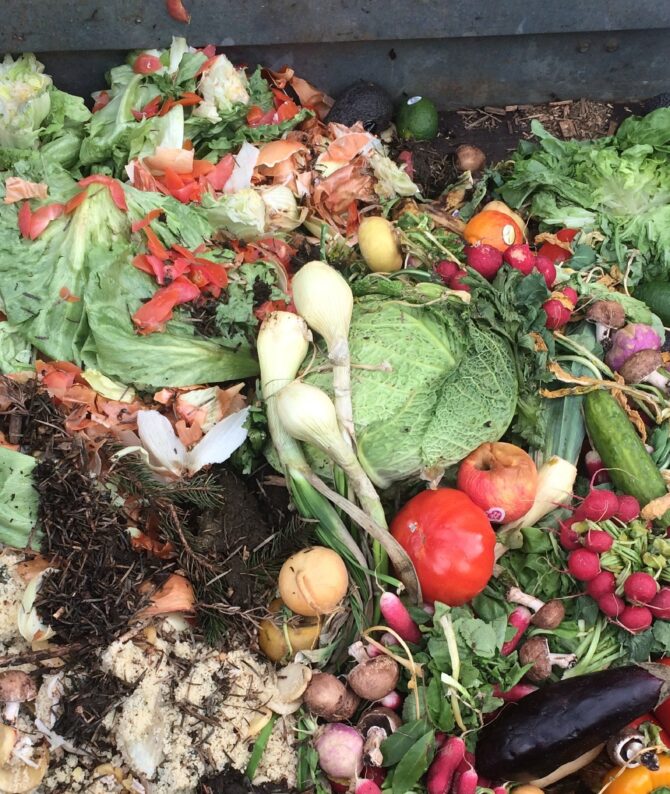How do you cool off? Northeastern Connects with Local Communities Through Boston’s Heat Emergency
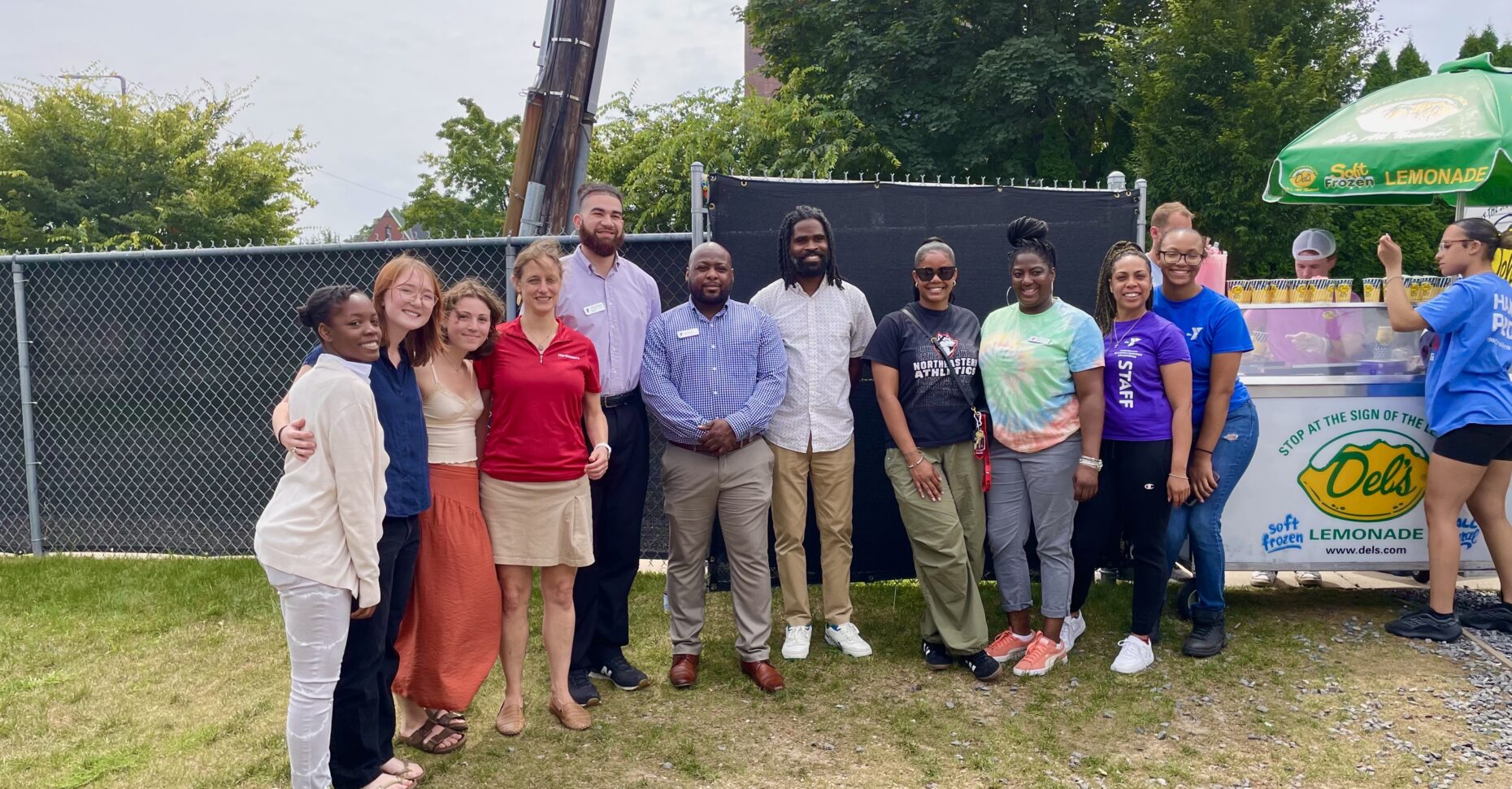
Roxbury YMCA Dels Hot Summer, Cool Break event.
As things heat up in Boston, and around the world, Northeastern helps communities cool down with the Hot Summer, Cool Break Initiative.
By Julia Laquerre with the Climate Justice and Sustainability Hub
The kids can’t contain their excitement, chanting “SLUSHIES, SLUSHIES, SLUSHIES.” Northeastern and Roxbury communities alike are happy to join the cool-down event with giddy smiles and laughter. And what better way to connect with and support our neighbors in the Roxbury community than to come together and share some refreshing Del’s Lemonade?
There’s nothing like sharing a cool treat with your community on a hot summer day. Northeastern University agrees: The Office of City and Community Engagement paired up with the Climate Justice and Sustainability Hub to create multiple Summer Heat Breaks in the communities around Northeastern. These gatherings are geared towards heat-vulnerable youth and seniors, and they help strengthen our relationships with neighbors.
“Because, as the climate changes, coming together as one community is important in facing these unpredictable challenges,” said Torrey Spies, the Senior Sustainability Strategist at the Climate Justice and Sustainability Hub.
“I think it’s important for all of us to wrap our heads around how we can put our Earth back on track- to be a bit more sustainable,” said Spies. And she explained that we have to recognize “the role of climate justice” in mitigating the disproportionate impacts that climate change can have on different communities.
| The Roxbury and Fenway neighborhoods are some of the hottest in the city, according to Figure 1. Boston’s Heat Resilience Plan released in 2022, declared that over the past 100 years, Boston has seen a 3.4℉ temperature rise. And heat waves will continue to increase, with more days above 90°F in Boston by mid-century.
And with it, an increase in the number of heat-related deaths. Excessive heat is the leading weather-related source of death in the United States, according to the United States Environmental Protection Agency. |
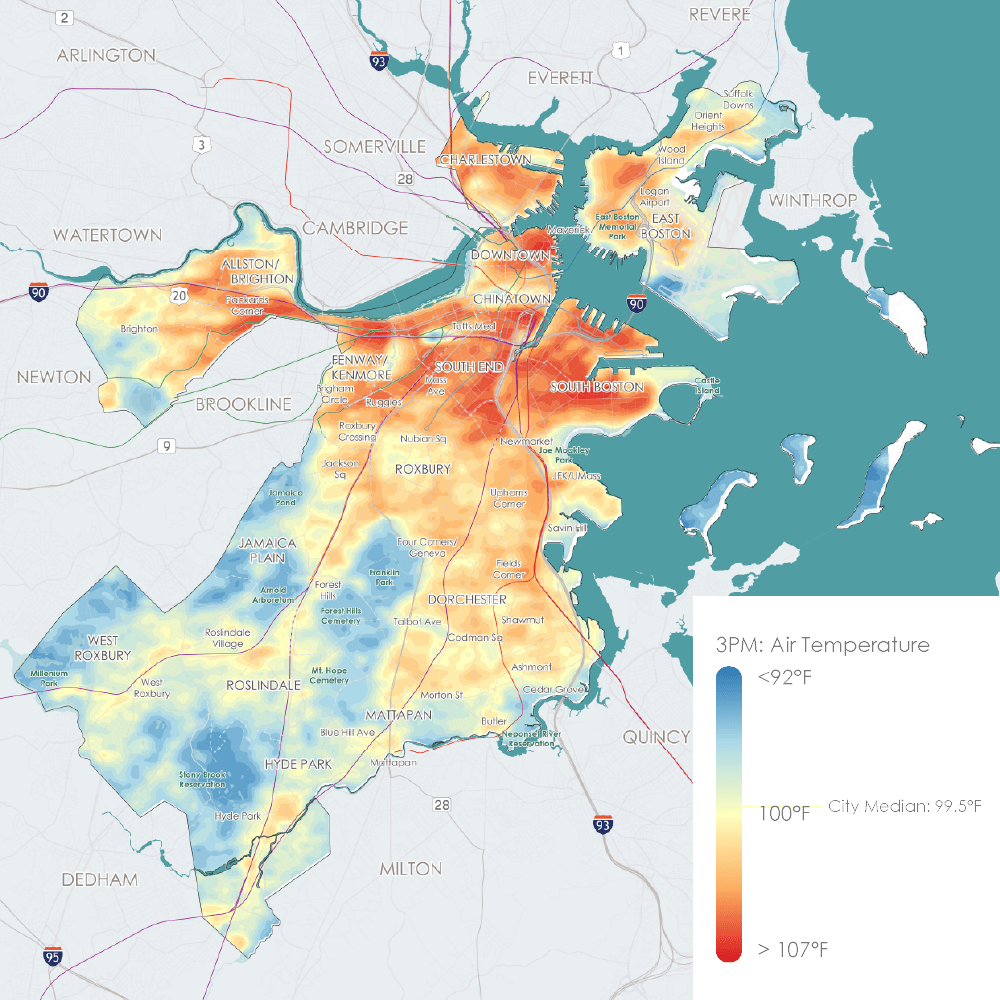
|
The solution was to start the “Hot Summer, Cool Break” initiative, led by the Climate Justice and Sustainability Hub to support extreme heat resilience in Northeastern and neighboring communities. Pilot initiatives range from providing cooling opportunities during heat waves, to analyzing how the built environment contributes to the urban heat island effect – a phenomenon where asphalt and other urban structures increase city temperatures.
Ashanti Brown is the community relations coordinator at Northeastern’s Department of City and Community Engagement and a leader of the Summer Heat Break community events. She said, “let us give you resources that can help you and your families. And then let’s work together and make a change.”
The change she is speaking of is to form a bridge between Northeastern and the surrounding communities because she wants locals to feel as though they “can walk through Northeastern and feel like [they] are a part of the campus without feeling like they are being shunned away or not feel welcomed.”
So, the two Northeastern departments spoke with community leaders and approached the City of Boston’s Office of Environment, Energy, and Open Space to determine what initiatives would be most effective and meaningful for people in the neighborhood looking to cool down.
They wanted to open a discussion and “learn from our partners” because the Climate Justice and Sustainability Hub has a part in “mitigating and providing some relief to our communities during these high heat events,” said Spies.
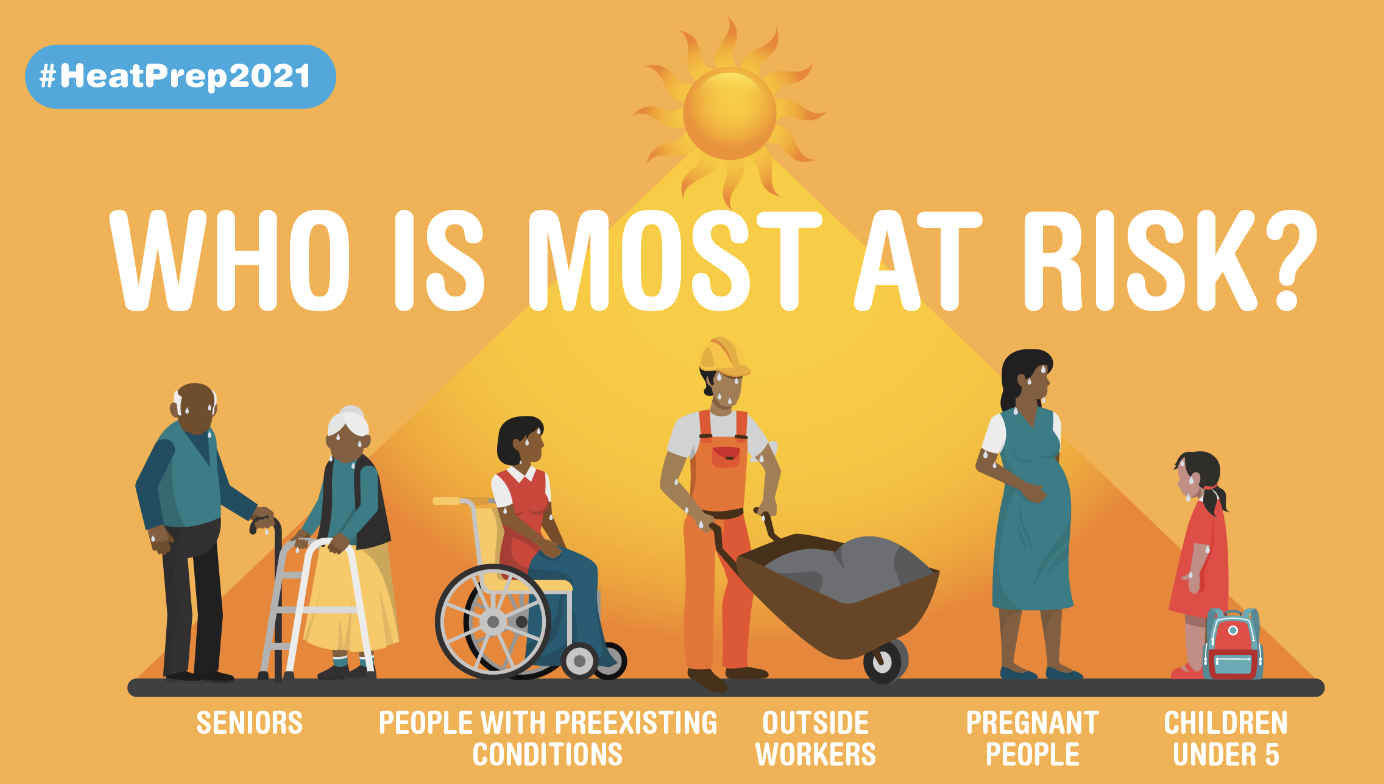 Figure 2: Graphic showing who is most at risk in extreme heat, produced by Metropolitan Area Planning Council. Figure 2: Graphic showing who is most at risk in extreme heat, produced by Metropolitan Area Planning Council. |
The change she is speaking of is to form a bridge between Northeastern and the surrounding communities because she wants locals to feel as though they “can walk through Northeastern and feel like [they] are a part of the campus without feeling like they are being shunned away or not feel welcomed.”
So, the two Northeastern departments spoke with community leaders and approached the City of Boston’s Office of Environment, Energy, and Open Space to determine what initiatives would be most effective and meaningful for people in the neighborhood looking to cool down.
They wanted to open a discussion and “learn from our partners” because the Climate Justice and Sustainability Hub has a part in “mitigating and providing some relief to our communities during these high heat events,” said Spies.
The response they received wasn’t what they expected. The team went into the conversations thinking the organizations would want to come to campus to cool down so their space could be used for regular programming. But Chimel Idiokitas, the Assistant Vice President for City and Community Engagement, said “The Roxbury YMCA were grateful because it allowed them to do something different for the day, [it] allowed their staff to kind of engage with us… And this was able to take them away from that structure just for a little bit and do something different for the kids.”
Salina Carrothers, the Program Administrator at the Roxbury YMCA, believes in the importance of diversity in fighting climate change, “having the Northeastern program help collaborate with us, shows diversity through the community. Many faces show up to the Roxbury YMCA and I feel it’s important to keep introducing our kiddos to differences in their own communities.”
But the Summer Heat Break events aren’t all that serious; their reasons are, but the activity is just a fun time with neighbors. Climate justice isn’t just about helping those in need, but also connecting with people and realizing the importance of fun.
Events like these are what bring people of all backgrounds together, so we can effectively share resources to make the fight for climate justice more equitable.
For the Hot Summer, Cool Break initiative, there’s more to come. Northeastern will continue to work with the city and surrounding communities to learn from this summer’s pilot and continue to improve its partnership and contribution towards heat mitigation and resilience.
“How do we help our neighbors live strong lives, [so they can] make change in the future?” said Spies, “As part of the Hub we are figuring out how to be a part of the solution.”
Because “it’s the small touches, the small activities. Things that we… [think] isn’t a big deal. Well, that may change a kid’s summer, it could have been the highlight of their summer,” said Idiokitas.
Written by Julia Laquerre, September 8th, 2023
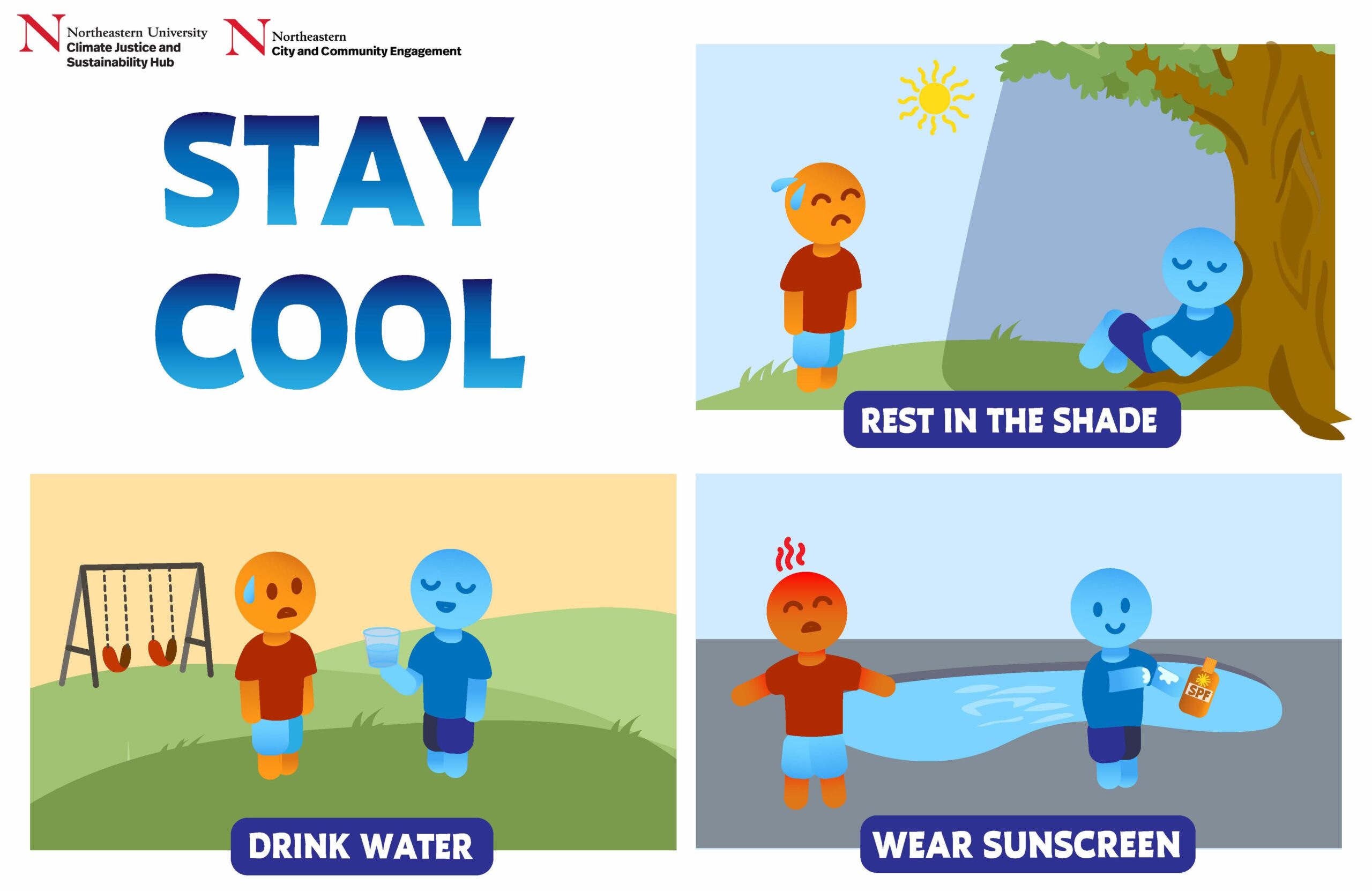 Figure 3: Graphic on effective cool-down methods, created by Bridget McClanon at Northeastern’sClimate Justice and Sustainability Hub. Printed and displayed at each cool-down event. Figure 3: Graphic on effective cool-down methods, created by Bridget McClanon at Northeastern’sClimate Justice and Sustainability Hub. Printed and displayed at each cool-down event. |

